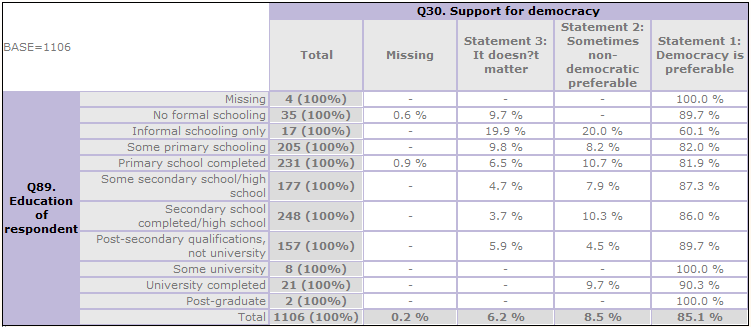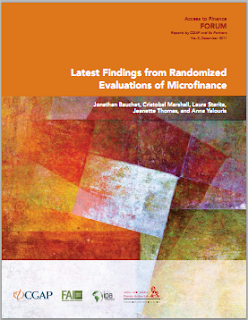Some gentle criticism of Banerjee and Duflo on political economy. From Poor Economics, they say:
Finally, they make a point also made by Tony Blair which you don't otherwise tend to hear too much - focusing relentlessly on delivery of something can help to improve governance.
Political economy is the view (embraced, as we have seen, by a number of development scholars) that politics has primacy over economics: Institutions define and limit the scope of economic policy.
there is no reason to believe, as the political economy view would have it, that politics always trumps policiesWhich is a bit of a straw man. For example, Benno J. Ndulu and Stephen A. O’Connell write:
Growth depends on the interaction of opportunities with choices.
The central message of the Growth project is to confirm the critical importance of policy for long term growth in SSA.and Daron Acemoglu and James A. Robinson
Main thesis is that growth is much more likely under inclusive institutions than extractive institutions.
Though growth is much more likely under inclusive institutions, it is still possible under extractive institutions.Their basic point is valid, but maybe just a little oversold. I'm not sure that Acemoglu and Robinson really think that there is nothing at all to be done to improve things in countries with weak institutions.
Finally, they make a point also made by Tony Blair which you don't otherwise tend to hear too much - focusing relentlessly on delivery of something can help to improve governance.
Good policies can also help break the vicious cycle of low expectations: If the government starts to deliver, people will start taking politics more seriously and put pressure on the government to deliver more, rather than opting out or voting unthinkingly for their coethnics or taking up arms against the government.
The political constraints are real, and they make it difficult to find big solutions to big problems. But there is considerable slack to improve institutions and policy at the margin. Careful understanding of the motivations and the constraints of everyone (poor people, civil servants, taxpayers, elected politicians, and so on) can lead to policies and institutions that are better designed, and less likely to be perverted by corruption or dereliction of duty.



